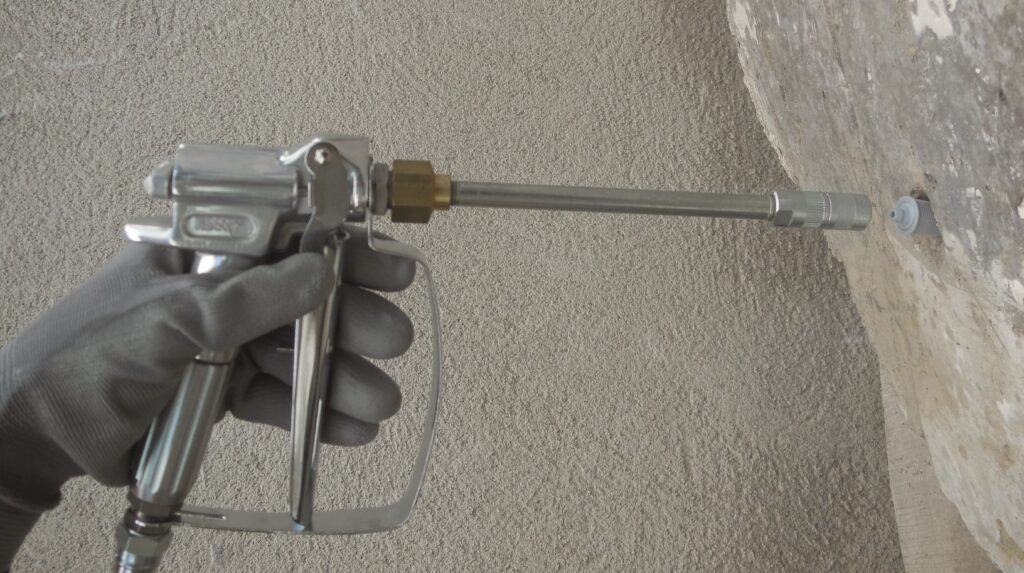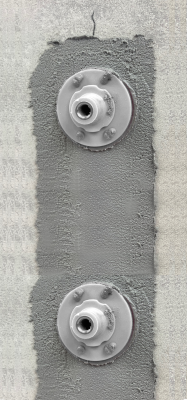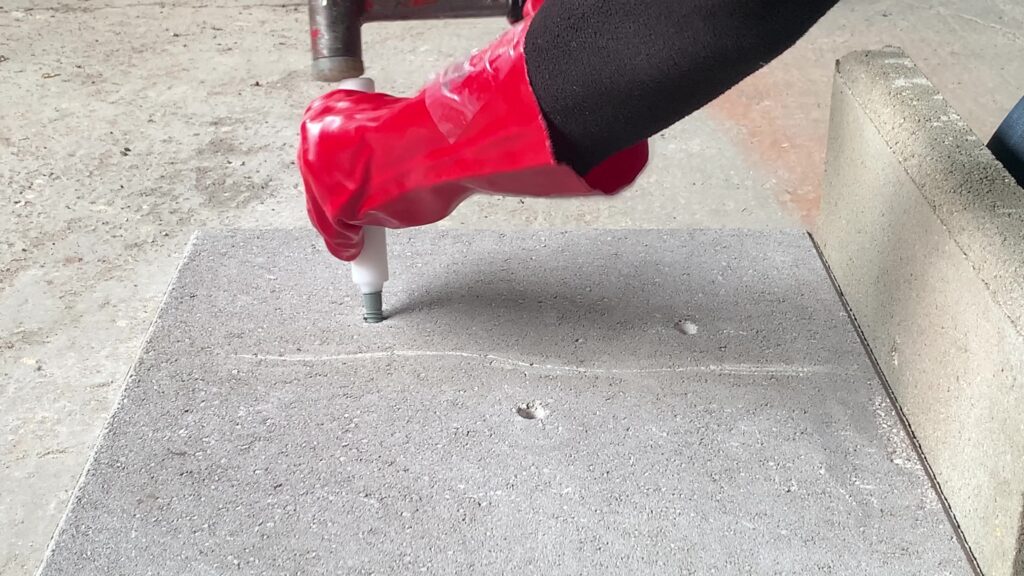
As mentioned in another article, it should be no surprise that cracks are common in buildings, infrastructure, and other concrete structures. These cracks not only compromise the aesthetics but also pose potential threats to the structural integrity and functionality of the concrete. To effectively repair these cracks and prevent further damage, injection ports and packers are indispensable tools in the concrete repair industry. While you will often hear the terms injection ports and injection packers used interchangeably, it is helpful to understand their distinct roles and functionalities in the concrete crack repair process.
Ports vs. Packers
Injection Ports
The main differences between injection ports and packers lie within their function, installation, and purpose. Injection ports, sometimes called surface ports, are small, hollow tubes or fittings that you install along the length of the concrete crack. (Bonded onto the concrete surface as their name suggests.) Their primary function is to serve as access points for injecting the repair material into the fissure. These ports create a sealed connection with the crack, preventing the injected material from leaking out and ensuring that it reaches the targeted areas. These injection ports (or surface ports) are mainly used to seal concrete cracks with epoxy resin.

Injection Packers
Injection packers, on the other hand, are devices inserted directly into the concrete crack. (Typically, on either side of the crack.) They are generally installed at a specific angle (often 45°) and interval, allowing the packer to intersect the crack. The exact spacing and placement depend on the repair requirements and conditions. They act as mechanical seals, preventing the injected material from escaping or leaking out of the crack during the injection. While injection ports are ideal for low-pressure injections, injection packers vary, being used for low to high-pressure injections and can be used with a wide range of sealants (epoxy, polyurethane, acrylic gel, or cement grout).
When it comes to injection packers, the two most common types are mechanical and hammer-in. Mechanical packers feature a threaded connection consisting of a body with a removable fitting and a rubber base that tightens the packer into the drilled hole. The threaded connection ensures a secure and tight fit, minimizing the risk of leaks during the injection process. They are suitable for applications when specific or high injection pressures are necessary.

You install hammer-in packers by tapping them into pre-drilled holes using a hammer or a mallet. Commonly made of plastic or rubber with a tapered shape, these packers are quick and easy to insert and install. They provide a secure seal within the crack, facilitating the effective injection of repair material. You may often see hammer-in packers used in applications where speed and simplicity are essential.
One of the benefits of hammer-in packers is the range of options available. The MABI line of injection packers offers a variety of hammer-in packers adapted to your concrete repair needs. While most of our range consists of simple, one-part packers, we also have a couple of two-part options. The first is our two-part packer for low-pressure injections (ref 01010002+01090010). This specific injector allows you to inject your chemical product in two parts and easily see product flow. The second is our two-part high-pressure injector (ref 01090050). With its specially designed anchoring sleeve, this packer creates a better hold on the support structure, making it perfect for injections up to 2000 PSI.
Materials Used for Injection Ports and Injection Packers

Like the different types of ports and packers, you will also find various materials used, plastic, steel, brass, and aluminum being the most common. Plastic injection ports and packers are lightweight, cost-effective, and corrosion-resistant. They are ideal for low-pressure injection applications or when chemical resistance is required. Plastic packers offer the advantage of being easy to handle and install, making them suitable for smaller-scale projects or situations where frequent port replacement is necessary. The single-use plastic packers are reliable for various concrete crack repair applications and provide efficient sealing and injection results.
Metal injection packers are known for their strength and durability. They can withstand high injection pressures, making them suitable for demanding concrete crack repair projects. However, it’s important to note that steel may be susceptible to corrosion in specific environments, especially in high-moisture or chemically aggressive conditions. They are also heavier, making handling and installation more difficult, especially when many packers are required. And finally, metal injection packers also tend to be more expensive than plastic which can be limiting when cost-effectiveness is a priority.
To Sum Things Up
Injection ports and injection packers play a vital role in concrete crack repair, allowing for the effective and efficient injection of repair materials. The various types of injection ports, from mechanical to surface-mounted packers, provide flexibility and adaptability to different repair scenarios. The materials used (plastic vs. metal) also offer different strengths and advantages depending on the repair job. With proper installation techniques and adherence to safety practices, injection ports and packers contribute to efficient concrete crack repair, prolonging the lifespan and structural integrity of the structure.
Of course, these different types of packers may have variations in design and features, depending on the manufacturer and specific application requirements. You should consider factors such as crack width, depth, and repair material compatibility when selecting the most appropriate type of packer for a particular concrete crack repair project.
Contact us to become a MABI injector distributor!